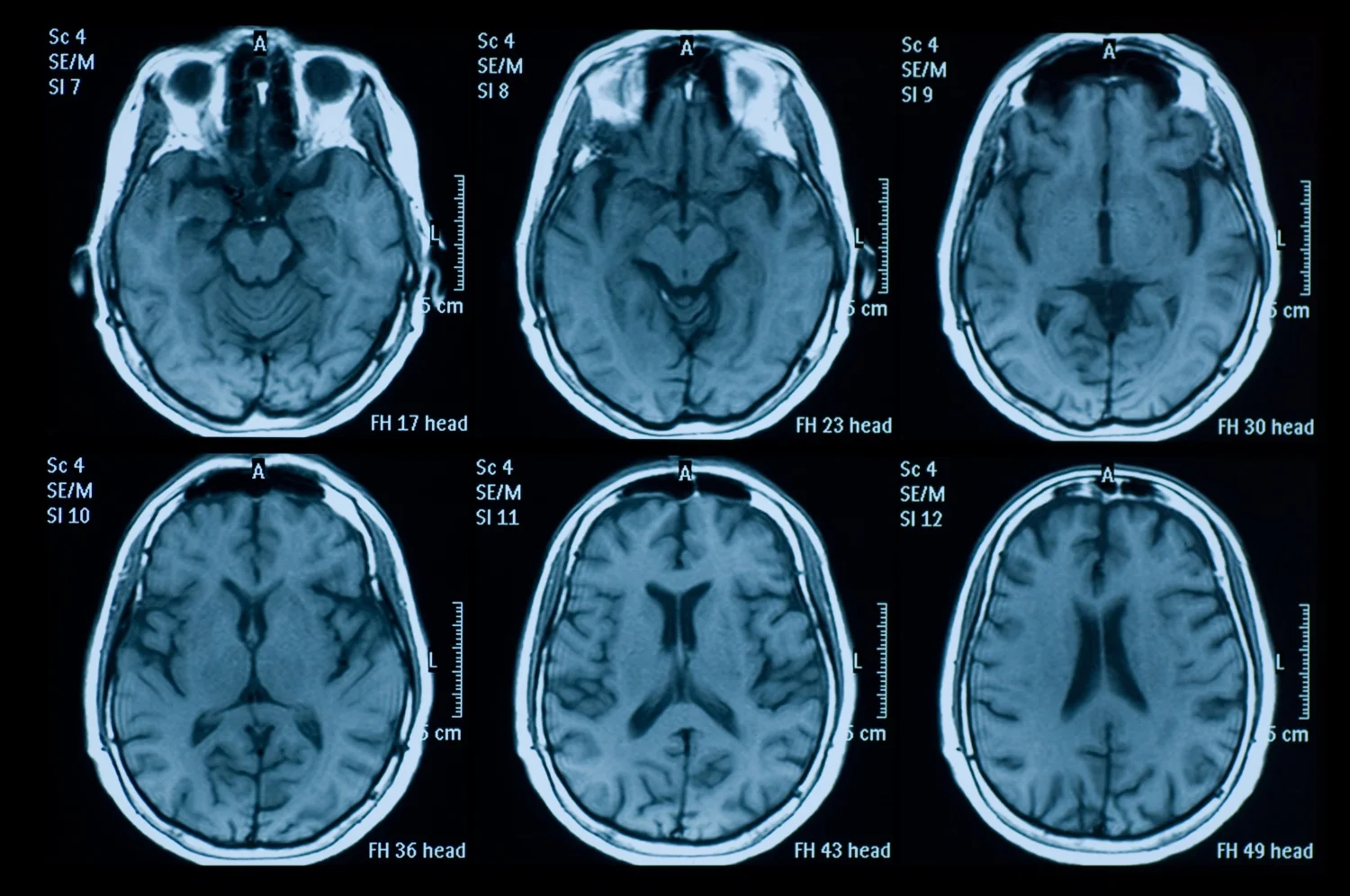Classification scale of TBIs (mild, moderate, severe)
A traumatic brain injury (TBI) involves some kind of disruption to the normal function or structure of a brain caused by impact or external force to the skull. A TBI may be classified as mild, moderate, or severe. People who suffer TBIs as the result of another party’s negligence are often entitled to compensation for their damages, and a Salt Lake City traumatic brain injury attorney can help you recover as much financial compensation as possible.
A TBI has the potential to be an incredibly devastating injury for a person to live with because the truth is that the injury is not always immediately evident, so many people can be completely unaware of the extent of difficulties with which a TBI victim is dealing. People coping with TBIs can face unfair assumptions about their intelligence or well-being when they are dealing with people who have no knowledge of their conditions.
Differences between mild, moderate, & Severe TBIs
The National Library of Medicine notes that mild, moderate, and severe TBIs all involve different scoring criteria on certain tests. People can suffer all three types of TBIs in various circumstances, including simple slip and fall accidents, automobile accidents, acts of violence, sports injuries, and explosive blasts.
Diagnosing a TBI usually involves a neurological exam, computerized tomography (CT) scans or magnetic resonance imaging (MRI) scans, and neuropsychological or neurocognitive tests. According to the National Library of Medicine, TBIs are typically classified as follows, based on how a person scores:
| Criteria | Mild | Moderate | Severe |
| Structural imaging | Normal | Normal or abnormal | Normal or abnormal |
| Loss of Consciousness (LOC) | 0–30 min | > 30 min and < 24 hrs | > 24 hrs |
| Alteration of consciousness/mental state (AOC) | a moment up to 24 hrs | > 24 hours. Severity based on other criteria | |
| Post-traumatic amnesia (PTA) | 0-1 day | > 1 and < 7 days | > 7 days |
| Glasgow Coma Scale | 13-15 | 9-12 | < 9 |
Certain TBI cases may require a person to undergo surgery to remove clotted blood from the brain or repair skull fractures. Possible medications a person is prescribed may include diuretics, anti-seizure drugs, coma-inducing drugs, anti-anxiety medications, antidepressants, or stimulants.
Rehabilitation for TBI victims can include: occupational therapy that allows a person to learn, relearn, or improve skills so they can perform everyday activities and self-care; physical therapy that helps a person relearn movement patterns; speech and language therapy to help a person relearn or improve communication skills and cognitive functioning, and vocational therapy that assesses a person’s ability to return to work.
Some people may also need the assistance of a rehabilitation nurse when they cannot care for themselves.
how the Glasgow coma scale works
As the National Library of Medicine notes, the Glasgow Coma Scale objectively describes the extent of impaired consciousness in all kinds of acute medical and trauma patients. The scale assesses people according to three aspects of their responsiveness: eye-opening, motor, and verbal responses.
Separately reporting each of these aspects will provide a clearer picture of a person’s condition. The findings for each component of the scale deliver a total Glasgow Coma Score that gives a less detailed description but can also provide a useful summary of the overall severity of an injury.
A score can be both an expression of the sum of the scores as well as its individual elements. For example, a total score of 10 based on an eye-opening score of 4, a motor score of 3, and a verbal response score of 4 may be expressed as GCS10 = E4V3M4.
The Glasgow Coma Scale and its total score are now incorporated in many clinical guidelines and scoring systems for trauma or critical illness victims, including children. The Glasgow Coma Scale divides into the three parameters of best eye response (E), best verbal response (V), and best motor response (M), with the levels of response in the components of the scale being scored from 1 for no response to normal values of 4 (eye-opening response), 5 (verbal response), and 6 (motor response).
A total Coma Score will have values between three and 15, with three being the worst and 15 being the best. The specific parameters are scored as follows:
Best eye response
- no eye opening
- eye opening to pain
- eye opening to sound
- eyes open spontaneously
Best verbal response
- no verbal response
- incomprehensible sounds
- inappropriate words
- confused
- orientated
Best motor response
- no motor response
- abnormal extension to pain
- abnormal flexion to pain
- withdrawal from pain
- localizing pain
- obeys commands
While the Glasgow Coma Scale may be used in children older than 5 years of age with no modification, there are different guidelines for children less than 2 years of age. In these cases, the parameters are scored as follows:
Best eye response
- no eye opening
- eye opening to pain
- eye opening to sound
- eyes open spontaneously
Best verbal response
- none
- moans in response to pain or incomprehensible sounds
- cries in response to pain or incomprehensible words
- irritable, cries, or is confused
- Coos and babbles or is orientated
Best motor response
- no motor response
- abnormal extension to pain
- abnormal flexion to pain
- withdrawal to pain
- withdraws to touch or localizes to pain
- moves spontaneously and purposefully or obeys commands
Certain factors can interfere with a Glasgow Coma Scale assessment. These may include pre-existing factors such as language barriers, intellectual or neurological deficits, and hearing loss or speech impediment.
Current treatment effects can also impact the Glasgow Coma Scale score when a person is unable to speak. Certain other kinds of injuries can also impact scores, such as spinal cord damage or other orbital or cranial fractures.
The Glasgow Coma Scale Pupils Score (GCS-P) is another test described by Paul Brennan, Gordon Murray, and Graham Teasdale as a strategy combining the two key indicators of the severity of TBI into a single simple index. GCS-P is calculated by subtracting a Pupil Reactivity Score (PRS) from the Glasgow Coma Scale total score, and a Pupil Reactivity Score is calculated based on how unreactive pupils are to light.
Both pupils score a 2, one pupil scores a 1, and neither pupil score a 0. A GCS-P score may range from 1 and 15 and will extend the range over which early severity may be shown to relate to outcomes of mortality or independent recovery.
The relationship between a Glasgow Coma Scale Score and outcome is the basis for a common classification of acute TBI, scored as follows:
- severe — TBI Glasgow Coma Scale Score of 3 to 8
- moderate — Glasgow Coma Scale Score of 9 to 12
- mild — Glasgow Coma Scale Score of 13 to 15
For the GCS-P score, any value between 1 and 8 will denote a severe injury.
TBI symptoms
People can also experience different symptoms based on the severity of their TBI. The United States Department of Health and Human Services identifies all of the following as being symptoms of mild TBIs:
- loss of consciousness for a few seconds to minutes
- state of being dazed, confused, or disoriented
- headaches
- fatigue or drowsiness
- lightheadedness
- confusion
- difficulty sleeping
- blurred vision
- dizziness or loss of balance
- tiredness or sleepiness
- ringing in the ears, or tinnitus
- changes in sleep habits
- memory or concentration problems
- bad taste in the mouth
- trouble with memory, concentration, attention, or thinking
- behavior or mood changes
- depression or anxiety
- nausea or vomiting
- sensitivity to light or sound
A person with moderate or severe TBI can experience many of the symptoms listed for mild TBI, as well as any of the following:
- loss of consciousness for a few minutes to hours
- vision loss in one or both eyes
- dilation of one or both pupils in the eyes
- headaches that get worse or do not go away
- slurred speech
- profound confusion
- clear fluids draining from the nose or ears
- repeated vomiting or continued nausea
- inability to wake up from sleep
- weakness or numbness in fingers and toes
- convulsions or seizures
- numbness or tingling of arms or legs
- loss of coordination
- enlargement of the pupil of one or both eyes
- increased confusion, restlessness, or agitation
- uncoordinated or “clumsy” movements
TBI is better known as the silent epidemic because approximately 2 million Americans suffer some form of TBI every year, and it is the leading cause of death and disability in people under 45 years of age. TBIs occur more frequently than breast cancer, acquired immunodeficiency syndrome (AIDS), multiple sclerosis, and spinal cord injury combined.
A person in the United States suffers a TBI roughly every 15 seconds, and about 100,000 people die from TBIs, while 500,000 are permanently disabled by them every year. There are 5.3 million Americans, over 2 percent of the American population, living with a disability resulting from TBI.
Call us to speak with a TBI attorney
If you or your loved one suffer a TBI in any kind of accident caused by another party’s negligence, it will be critical for you to quickly seek legal representation for assistance in filing an appropriate injury claim so you can recover all of the financial compensation you need and deserve. Gosdis Law can work with reputable experts to help prove the true extent of your injuries when an insurance company tries to deny the severity.
You should know that our firm offers a free initial consultation for you to discuss your case with us and learn more about what legal options you might have. Give us a call at (385) 429-9960 or contact us online today to schedule yours and start getting the legal help you need to win your case.




